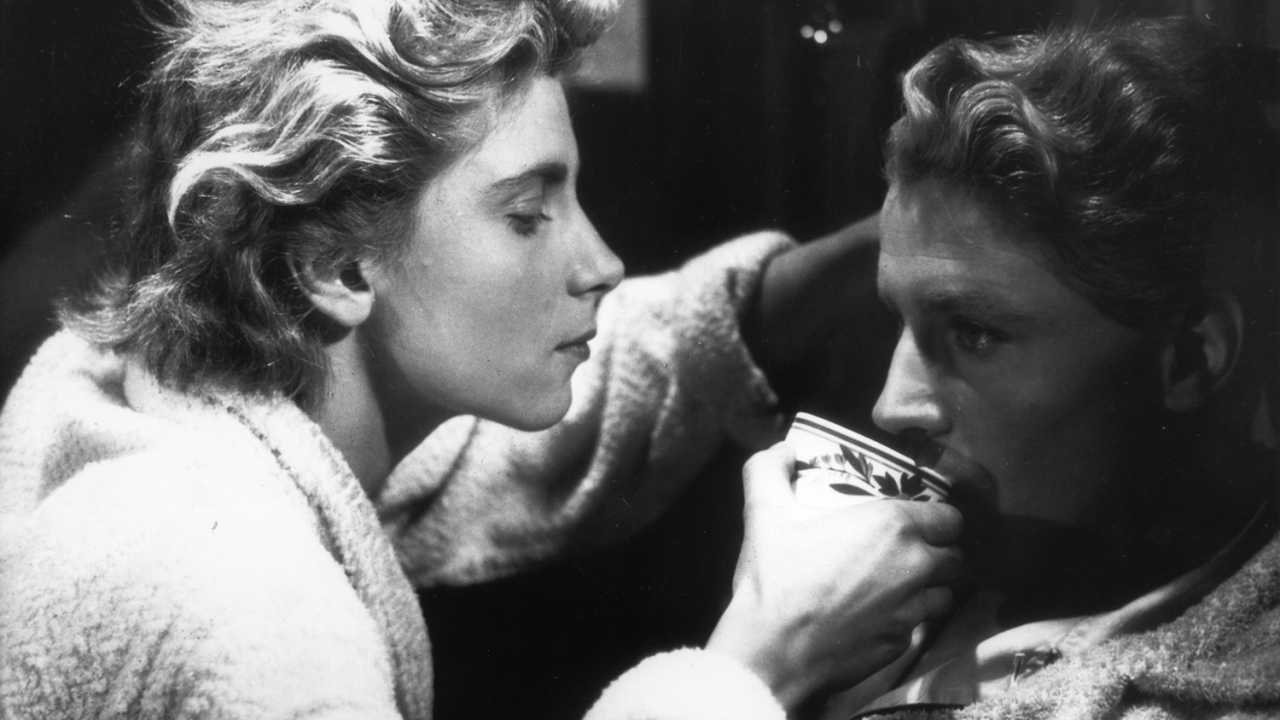Les enfants terribles

Writer Jean Cocteau and director Jean-Pierre Melville joined forces for this elegant adaptation of Cocteau’s immensely popular, wicked novel about the wholly unholy relationship between a brother and sister. Elisabeth (a remarkable Nicole Stéphane) and Paul (Edouard Dermithe) close themselves off from the world by playing an increasingly intense series of mind games with the people who dare enter their lair—until romance and jealousy intrude. Melville’s operatic camera movements and Cocteau’s perverse, poetic approach to character merge in Les enfants terribles to create one of French cinema's greatest, and most surprising, meetings of the minds.
SPECIAL EDITION FEATURES
- Restored high-definition digital transfer
- Audio commentary featuring writer, film critic, and journalist Gilbert Adair
- Interviews with producer Carole Weisweiller, actors Nicole Stéphane and Jacques Bernard, and assistant director Claude Pinoteau
- Around Jean Cocteau (2003), a short video by filmmaker Noel Simsolo discussing Cocteau and Melville's creative relationship
- Theatrical trailer
- Gallery of behind-the-scenes stills
- PLUS: An essay by critic Gary Indiana, a tribute by Stéphane, an excerpt from Rui Nogueira's Melville on Melville, and drawings by Cocteau
Cover by Lucien S. Y. Yang
SPECIAL EDITION FEATURES
- Restored high-definition digital transfer
- Audio commentary featuring writer, film critic, and journalist Gilbert Adair
- Interviews with producer Carole Weisweiller, actors Nicole Stéphane and Jacques Bernard, and assistant director Claude Pinoteau
- Around Jean Cocteau (2003), a short video by filmmaker Noel Simsolo discussing Cocteau and Melville's creative relationship
- Theatrical trailer
- Gallery of behind-the-scenes stills
- PLUS: An essay by critic Gary Indiana, a tribute by Stéphane, an excerpt from Rui Nogueira's Melville on Melville, and drawings by Cocteau
Cover by Lucien S. Y. Yang

Cast
- Nicole Stéphane
- Elisabeth
- Edouard Dermithe
- Paul
- Renee Cosima
- Agathe/Dargelos
- Jacques Bernard
- Gerard
- Melvyn Martin
- Michael
- Roger Gaillard
- Gerard's uncle
- Maurice Revel
- The doctor
- Adeline Aucoc
- Mariette
- Jean Cocteau
- Voice
Credits
- Director
- Jean-Pierre Melville
- Based on the novel by
- Jean Cocteau
- Screenplay
- Jean Cocteau
- Assistant director
- Claude Pinoteau
- Cinematography
- Henri Decaë
- Sound editing
- Jacques Gallois
- Sound editing
- Jacques Carrère
- Editing
- Monique Bonnot
- Costumes
- Christian Dior












